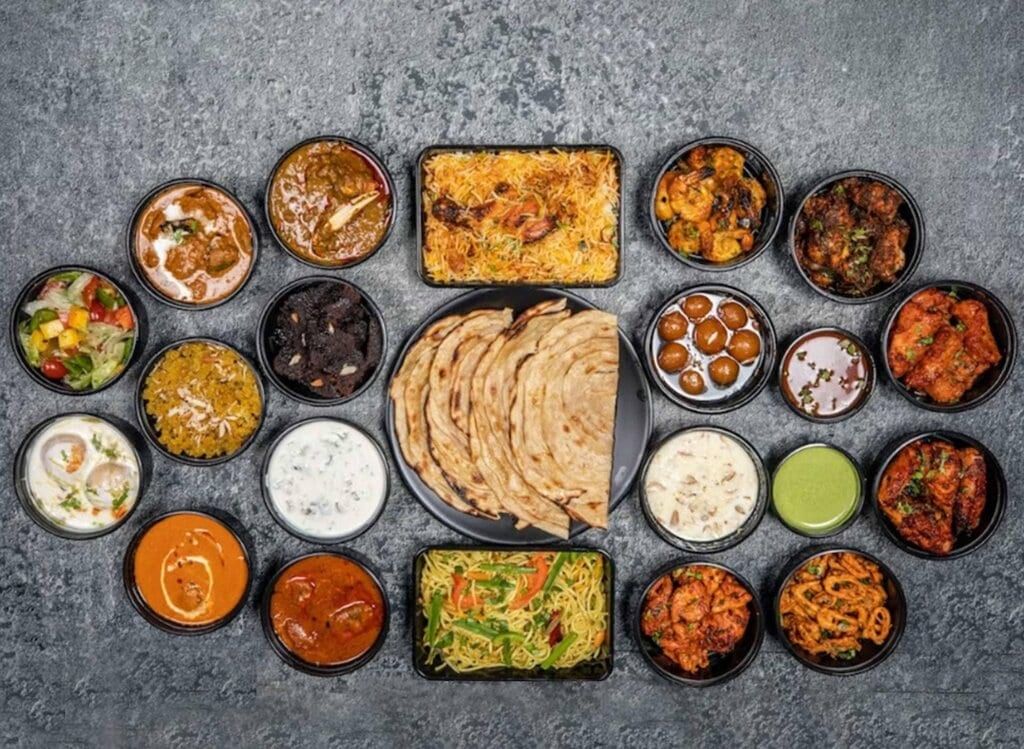Speaking Practice Test- 1 | IELTS Mock Tests & Practice Tests PDF Download
Part - 1
First set of questions, asked to almost all students
Q1: May I know your full name?
Ans: My full name is Anjali Mehra. (Note: Full name means given name + middle name if any + surname. Mostly students will speak the name given in the passport, which may not have the surname. So, you must speak your full name in answer to this question)
Q2: May I see your ID?
Ans: Here is my passport. (Note: open the first page of the passport and show it to the examiner. You don’t need to say ‘Yes’) PassportQ3: How may I address you?
PassportQ3: How may I address you?
Ans: You may address me as Anjali. (Note 1: Here you may even speak your nickname. It just means that while asking the next questions, the examiner will call you by that name. Note 2: Many students start speaking their address here. Here, the word ‘address’ has been used as a verb, which means ‘call’. In other words, the question is - How may I call you?)
Q4: Where do you come from?
Ans: I come from Phagwara. It is a small town between Jalandhar and Ludhiana.
Hometown
 HometownQ1: Let’s talk about your hometown. Where is your hometown?
HometownQ1: Let’s talk about your hometown. Where is your hometown?Ans: My hometown is a tiny village in Malaysia. It is about 40 kilometers away from any major city. Most people probably wouldn’t be able to find it on a map.
Q2: What do you like about it?
Ans: I like how the people in my hometown are so friendly, and the way that everyone knows everyone. It’s a really close-knit community, which is hard to find in big cities.
Q3. What do you not like about it?
Ans: I suppose my least favourite thing about it is that there aren’t too many fun things to do or see. It’s not the most exciting place, so sometimes I feel a little bored.
Q4: How important is your hometown to you?
Ans: My hometown is very important to me because that’s where my family lives. It’s where I come from, so it shapes a lot of who I am as a person. If I move away, I’ll likely be homesick for a while.
Q5: Do you think you will continue to live in your hometown?
Ans: I’ve lived in my hometown since I was born, and I would be happy to continue living there. However, I’d like to try living abroad, even if it’s just for a short time.
Q6: What is your country famous for?
Ans: Well, Indian cuisine is famous around the world, and North Indian cuisine is the most popular kind. I think people like it because the flavours are bold and unique and there are many different kinds of dishes for those who eat meat as well as vegetarians.
 Indian CuisineQ7: Where do you live in your country?
Indian CuisineQ7: Where do you live in your country?Ans: I live in Delhi, which is the second most populated city in India. I’ve lived there for my entire life, and most of my family does, too.
Q8: Is it an interesting place to live?
Ans: Yes, I think Delhi is a very interesting place full of history and culture. People who live or visit Delhi can experience the past, present, and future of India all in one place. The city is also very diverse and welcoming to those from different cultures, so it’s a good place for tourists to visit.
Q9: Are you planning to live there in the future?
Ans: No, in the future I hope that I can live in the UK because I think it is a good place to live and there are more promising opportunities for work in my professional field. However, I will always go back to visit my family in Delhi.
Q10: Can you tell me about your hometown?
My hometown, Delhi, is the second largest in India. The capital of the country, New Delhi, is also there. There is an international airport in Delhi, so it’s easy to travel in and out of the country from there.
Q11: How has your hometown changed over the years?
Ans: It has developed much better public transportation, such as the metro, which has really improved the overall accessibility of the city. There have also been measures undertaken to reduce pollution and crowds, so those problems have slightly improved. Improvements are still being made to the education system, as well.
Q12: Is there any way your hometown could be made better?
Ans: I think one of the biggest issues in Delhi is women’s safety. The city does not have a good reputation surrounding this problem, and many women fear going out alone in the city because of it. More needs to be done to protect women in Delhi.
Q13: Are there good transportation links to your hometown?
Ans: Yes, there are trains, buses, and major highways that connect easily to Delhi. There is an airport in New Delhi, and since it’s the capital of India, it is very well connected to the rest of the country.
Q14: What kind of jobs do the people in your hometown do?
Ans: Well, there are many different kinds of jobs, since it is a major city, but I think some of the fastest-growing job markets are in computer programming and software development. There are also many jobs in marketing and retail. However, the salaries that people make can vary quite a bit depending on how much experience they have, so sometimes it can be hard to make a living even in a city like Delhi.
Q15: Where is your hometown?
My hometown is the city of Delhi, which is located in Northern India and is the second most populated city in India. The Yamuna River runs through Delhi, and you can also find the Yamuna flood plains and the Delhi ridge nearby.
Q16: How often do you visit your hometown?
Ans: I visit my hometown every two years or so when I have enough time off to make the trip. It is fairly convenient to travel there since there is an international airport. The last time I was there was about a year ago.
17: How many people live in your hometown?
Ans: Population-wise, Delhi is the second-largest city in India, so the population is very high. The last time I checked was a while ago, but I believe that there are over 16 million people living in the metro area of Delhi.
Q18: What is your hometown famous for?
Ans: Delhi is probably best known for its capital the city, New Delhi, and the president’s house, which is called the Rashtrapati Bhavan. It is also well-known to tourists for its food and marketplaces. Those who enjoy history can also check out Qutub Minar, which is also an interesting sight.
Q19: What’s the oldest part of your hometown?
Ans: Old Delhi is the historical part of the city, and it was founded about 400 years ago. Within Old Delhi, there is one particularly old place called “The Red Fort” that has been standing since 1648, and nearby is Chandni Chowk, which is often called the oldest bazaar in Delhi.
Part -2 & 3
Cue Card
Describe an advertisement that persuaded you to buy a product. You should say
- What advertisement it was
- Was it shown on TV, radio or newspaper
- What was good about that advertisement
Explain why you think that advertisement made the product seem attractive.
Ans: There have been a few different instances in which an advertisement has convinced me to buy something. Most recently, it was an ad I saw this morning on my way to the coffee shop. When I was driving this morning, I passed an advertisement on a sign, like a small poster. The sign showed some scrambled eggs pictured next to two delicious-looking pieces of toast and a steaming hot cup of coffee. As soon as I saw it, I immediately felt a growl in my stomach and I realized that I was quite hungry! Curious about what the sign was promoting, I looked below the picture of the breakfast and saw that the coffee shop nearby was giving away a free cup of coffee with every breakfast order. So, the next thing I did was walk into the coffee shop and order the breakfast from the picture to go! I think that the ad was especially effective in convincing me to spend money for two reasons. The first is that the picture made the food look very appetizing, which appealed to me a lot since I was so hungry. Secondly, the promotion being advertised was actually a good deal and allowed me to save some money on a cup of coffee, which I still would have bought otherwise. That advertisement was really well done.
Follow-ups
Q1: What are the popular types of advertising in today’s world?
Ans: There are many popular ways companies can choose to advertise. In today’s world, the top three advertisement types are probably internet ads, TV ads, and signs. Internet ads are obviously popular because they are cheap, yet they are highly effective and can be targeted to the customer based on their online habits. On the other hand, TV ads are probably equally as popular, because although they are more expensive, they will be viewed by a large number of people watching TV. Lastly, signs are popular to use for ads because they can be put into specific places where potential customers might see them, like department stores. So, those are some of the most popular ways to advertise.
Q2: What type of media advertising do you like most?
Ans: Well, I would say that I prefer internet ads. I say that because the internet is the only type of media I even use these days, as I don’t own a television or listen to the radio. I like internet ads because they’re often based on my internet history, which means I only see ads that are relevant to things I’m interested in, rather than ads for things I don’t care about. Another reason why I like internet ads is that they are easy to ignore or cancel when they appear. Unlike TV commercials, which are distracting, noisy, and cannot be skipped, internet ads are usually more subtle, like a small banner on the side of the webpage that can be easily ignored. That’s why I like internet ads the best.
Q3: Do you think advertising influences what people buy?
Ans: Yes, definitely. If there were no advertising and you went to a shop, then you would just buy whatever you wanted. Your choice might be based on what others have told you, what the product looks like, or, depending on the product, what it says on the label. Advertising builds up a brand and people then trust a certain thing because they have seen it on television or elsewhere. Also, there is so much advertising around us that it must influence us. You can’t escape it, as it is fed to us constantly in our daily lives – not only in magazines, radio and television but on billboards, on TVs installed on trains and platforms, and even in schools and universities. So yes, advertising influences what we buy.
Q4: What factors should be taken into account when making advertisements?
Ans: I think that advertisers should bear a certain level of responsibility when they make their ads. The most important thing is they need to ensure that the information they are sharing is relatively truthful, and is not harmful or destructive in some way. For example, fast food ads for fried chicken should not turn around and try to convince people that the food they’re selling is somehow healthy. They can, however, promote how delicious the food is. Advertisers should try to tell the truth as much as possible.
Q5: Is advertising really necessary in modern society?
Ans: It could be seen as necessary in terms of the fact that, as I mentioned before, there are so many choices that we might need someone to guide us in what to buy, or to give us some extra information about products. Without this, it would be difficult to know where to start. However, that said, I’m not sure that I would regard it as ‘necessary’, as overall I think it may do more harm than good. As we just discussed, advertising encourages people to buy things they might not need. We live in a consumer society and many people are in debt because we are encouraged to buy and buy, and I’m sure advertising plays a major role in this. Without advertising, we could just do our own research and decide what we really need. So no, I would not say that advertising is necessary in modern society.
Q6: Let’s move on from types of advertising to the impact of advertising on children. How does advertising influence children?
Ans: It seems to me that advertising can affect kids in a few different ways. First of all, advertisements can mislead and confuse children by exaggerating the effects a product can have, like how makeup ads try to convince people that their eyelashes will grow if they use a particular brand of mascara. Secondly, ads can affect children’s self-image and self-esteem by causing them to think that they need to be like the people in the ads, who are often misrepresentations of real people. Impressionable children who see ads may get the wrong idea about some things.
Q7: Is there any advertising that can be harmful to children?
Ans: Unfortunately, there are some ads that can be harmful to kids. For example, ads for types of foods and drinks that contain high amounts of sugar and fat can manipulate children into wanting to eat these foods. Another way that ads can harm children is that they can negatively affect children’s self-esteem. Children who see models in advertisements may believe that they need to look like those people and become upset when they aren’t able to achieve perfection. So, promoting unhealthy influences and lowering self-esteem are a few reasons why ads can be harmful to kids.
|
15 videos|65 docs
|
FAQs on Speaking Practice Test- 1 - IELTS Mock Tests & Practice Tests
| 1. What are some common topics related to hometowns that might be asked in the IELTS Speaking test? |  |
| 2. How can I prepare for the hometown-related questions in the IELTS Speaking test? |  |
| 3. What types of questions can I expect in Part 1 of the IELTS Speaking test about my hometown? |  |
| 4. How can I make my answers more engaging when discussing my hometown in the IELTS Speaking test? |  |
| 5. Are there any specific vocabulary words I should learn for discussing my hometown in the IELTS Speaking test? |  |






















